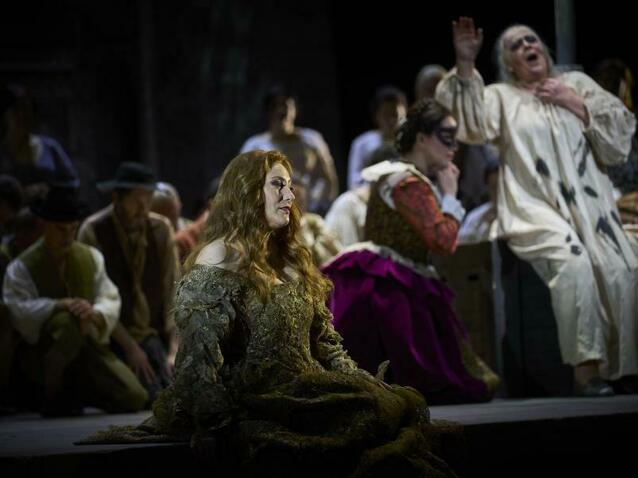 © David Ruano / Gran Teatre del Liceu
© David Ruano / Gran Teatre del Liceu
Schedule
Glossary
show the glossarySearch
Connect
-
Connect to your account
-
Create your account
Community
Chronique à la une
 © David Ruano / Gran Teatre del Liceu
© David Ruano / Gran Teatre del Liceu
Filter
All columns
Saioa Hernández is Gioconda at the Gran Teatre del Liceu
Xavier PujolSaioa Hernández has found in the character of Gioconda the role upon which she is building a significant part of her career. She was the most eagerly awaited singer in this new production of La Gioconda, which has just opened at the Gran Teatre del Liceu, and this marks the sixth different staging of Amilcare Ponchielli’s opera in which the Madrid-born soprano has taken part. That is no small achievement, given that the work, though not a rarity, is performed relatively...
Persuasive New Production of Rise and Fall of the City of Maha...
Sam SmithKurt Weill’s Rise and Fall of the City of Mahagonny, with a libretto by Bertolt Brecht and Elisabeth Hauptmann, describes the establishing and subsequent implosion of a city that is designed to give people fun because, it is asserted, there is nothing else in the world on which to rely. Situated somewhere in America, it is initially founded by three fugitives (Leokadja Begbick, Fatty the Bookkeeper and Trinity Moses) who find themselves unable to flee any further from the pursuing...
Best Revival Yet of Phelim McDermott’s Così fan tutte for Engl...
Sam SmithOriginally set in Naples, Così fan tutte of 1790 sees the philosopher Don Alfonso challenge two soldiers, Ferrando and Guglielmo, to prove that their respective fiancées, the sisters Dorabella and Fiordiligi, are faithful. He is certain that no woman ever is, but the younger men are so convinced of their own lovers’ fidelity that they agree to a wager with him. They will pretend to be called away to war and then return disguised as Albanians to try to win over the...
Fantastic Cast in Boris Godunov at the Royal Ballet and Opera,...
Sam SmithBoris Godunov is Modest Mussorgsky’s only completed opera, and widely considered to be his masterpiece. Its subjects are the eponymous Russian ruler, who reigned as Tsar from 1598 to 1605, and the False Dmitry I, who succeeded him almost immediately but was killed a year later. The Russian language libretto was written by the composer, and is based on Pushkin’s blank verse drama Boris Godunov as well as Nikolay Karamzin’s History of the Russian...
Lise Davidsen’s Magnificent Isolde Debut
Xavier PujolGreat expectations surrounded, for several reasons, the premiere of the new production of Tristan und Isolde at Gran Teatre del Liceu. Chief among them was the fact that Lise Davidsen, one of the most highly regarded Wagnerian sopranos of the present day, would be singing Isolde for the first time in her career, one of the most demanding female roles in the operatic repertoire in every respect. Another source of expectation was that a woman, Susanna Mälkki, would be taking the...
Ermonela Jaho is a Highly Sensitive Violetta in La traviata at...
Sam SmithGiuseppe Verdi’s La traviata of 1853, with a libretto by Francesco Maria Piave, is one of the most frequently performed operas in the world today. Based on Alexandre Dumas fils’s play La Dame aux camélias, it tells of Violetta Valéry who is a famed Parisian courtesan. Beneath her apparently carefree exterior, however, she is suffering from tuberculosis and her world is shaken when she meets Alfredo with whom she falls in love. They run away together and live...
